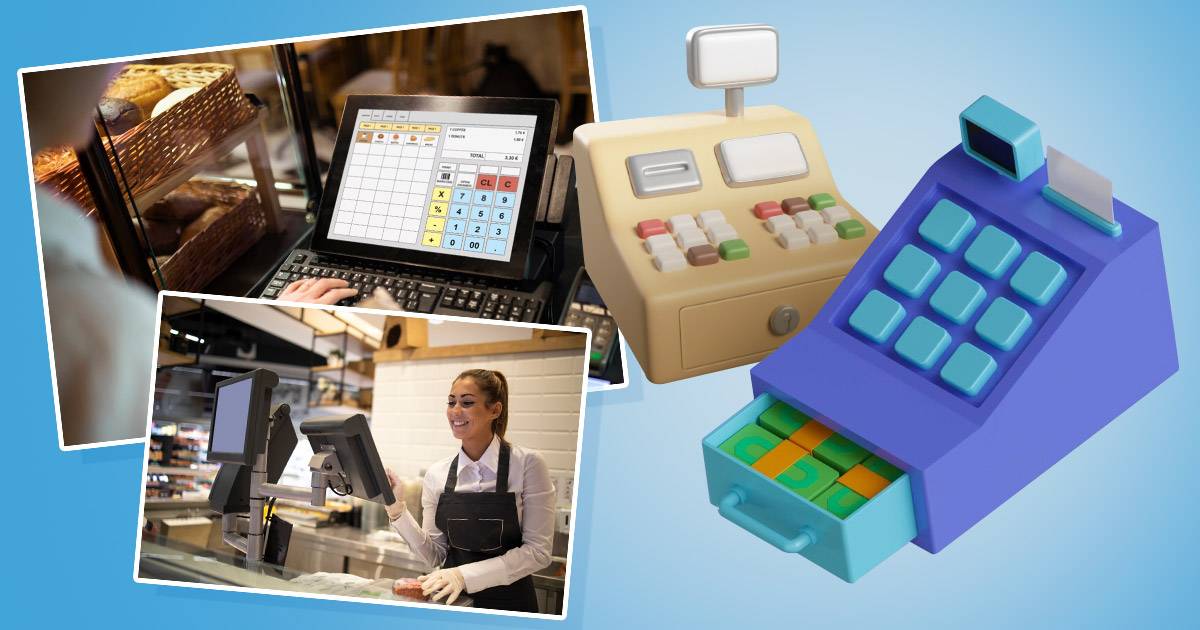From Cash Register to POS: How Retail Evolved

Knowing the difference between old-school cash registers and modern POS systems is super important for businesses looking to simplify their work and make customers happier. Both handle sales, but they’re pretty different in what they offer and how they affect your business. Cash registers are basic and get the job done for simple sales. POS systems, though, are more high-tech and packed with features that can totally change the way your business runs.
Traditional Cash Registers: Simplicity and Functionality
Traditional cash registers have long been the standard for retail businesses. They are designed to process sales transactions, calculate totals, and securely store cash. Some electronic models offer additional features, like basic reporting and receipt printing. These registers are durable and cost-effective, making them suitable for businesses with straightforward transaction needs, such as small retail shops or restaurants.
However, their simplicity can also be a limitation. Cash registers don’t offer tools for tracking inventory or gathering customer data. They lack connectivity to other business systems, which means tasks like inventory management or financial reporting must be handled manually. For growing businesses, these limitations can lead to inefficiencies that slow operations and hinder growth.
Modern POS Systems: A Holistic Business Solution
Modern POS systems combine hardware and software to create a powerful platform for managing more than just sales. These systems integrate seamlessly with other business tools, helping store owners streamline workflows and make data-driven decisions. The versatility of a POS system makes it suitable for businesses of all sizes, whether it’s a small boutique or a large chain retailer.
Unlike cash registers, POS systems can track inventory in real time, monitor employee performance, and generate in-depth sales reports. Additionally, these systems support various payment methods, including credit cards, mobile wallets, and online payments. Many also come with customer relationship management (CRM) tools that store purchase histories, enabling personalized promotions and improved customer experiences.
Features That Set POS Systems Apart
POS systems go beyond basic transaction handling to provide tools that simplify and improve business operations. Here are some key features:
Inventory Management
Tracking stock manually is time-consuming and prone to errors. POS systems automate this process by updating inventory levels in real time after every sale. Alerts for low stock help businesses avoid running out of popular items and keep operations running smoothly.
Sales Analytics
Understanding sales patterns is vital for growth. POS systems generate detailed reports, allowing businesses to identify best-selling items, peak sales periods, and customer preferences. This data helps in forecasting demand and planning marketing strategies.
Flexible Payment Options
POS systems can process various payment methods, from traditional cash and cards to modern digital wallets like Apple Pay or Google Pay. This flexibility caters to customer preferences and speeds up checkout times.
Integration with Business Tools
Modern POS systems integrate with accounting software, marketing tools, and e-commerce platforms. This connectivity ensures seamless operations across departments and saves time spent on manual data entry.
Customer Management
A POS system’s CRM feature stores customer contact details, purchase history, and preferences. Businesses can use this data to send personalized offers or loyalty rewards, boosting repeat business and customer satisfaction.
Why Businesses Are Switching to POS Systems
As the retail landscape evolves, more businesses are transitioning from traditional cash registers to POS systems. The main reasons include:
Increased Efficiency
Automating repetitive tasks like inventory tracking and sales reporting reduces manual errors and saves time. Employees can focus on customer interactions rather than administrative tasks.
Enhanced Accuracy
Mistakes in calculations or inventory records can be costly. A POS system ensures accuracy by syncing data across platforms in real time, minimizing discrepancies.
Improved Customer Experience
Customers expect quick and convenient service. A POS system streamlines the checkout process and supports multiple payment options, making transactions faster and more flexible.
Scalability for Growth
Traditional cash registers may not keep up as a business grows. POS systems are designed to adapt to increasing demands, whether adding new locations, integrating e-commerce, or expanding product lines.
POS System or Cash Register: Factors to Consider
Choosing between a cash register and a POS system depends on your business’s unique needs. Here are some important considerations:
Business Complexity
Small businesses with simple needs might find cash registers sufficient. However, if you require advanced tools like inventory tracking, sales analytics, or CRM, a POS system is a better choice.
Budget
Cash registers are more affordable upfront, but their limited functionality may result in higher operational costs in the long run. POS systems require a larger initial investment but offer significant time and cost savings through automation and integration.
Future Plans
For businesses with plans to grow, a POS system is the more scalable option. It can accommodate new products, payment methods, or locations without requiring significant upgrades.
Employee Training
Traditional cash registers are straightforward to use, requiring minimal training. In contrast, POS systems have more features and may need a bit of onboarding. However, their user-friendly interfaces and intuitive designs make the learning curve manageable.
Modern Retail: A Closer Look at POS Technology
POS systems have revolutionized the way businesses operate, but their advantages extend beyond retail. Restaurants, service providers, and even small businesses like salons or repair shops benefit from the functionality of modern POS systems. Mobile POS systems, for example, allow businesses to take payments anywhere, offering flexibility that cash registers cannot match.
POS systems are also shaping the future of retail through data-driven insights. Business owners can monitor trends, optimize pricing strategies, and even forecast seasonal demand with the help of real-time analytics. These systems provide a competitive edge in a fast-paced market where efficiency and adaptability are key.
